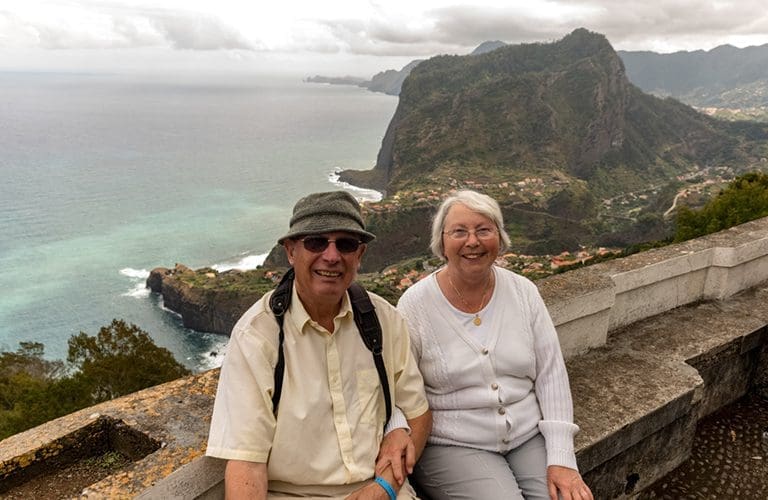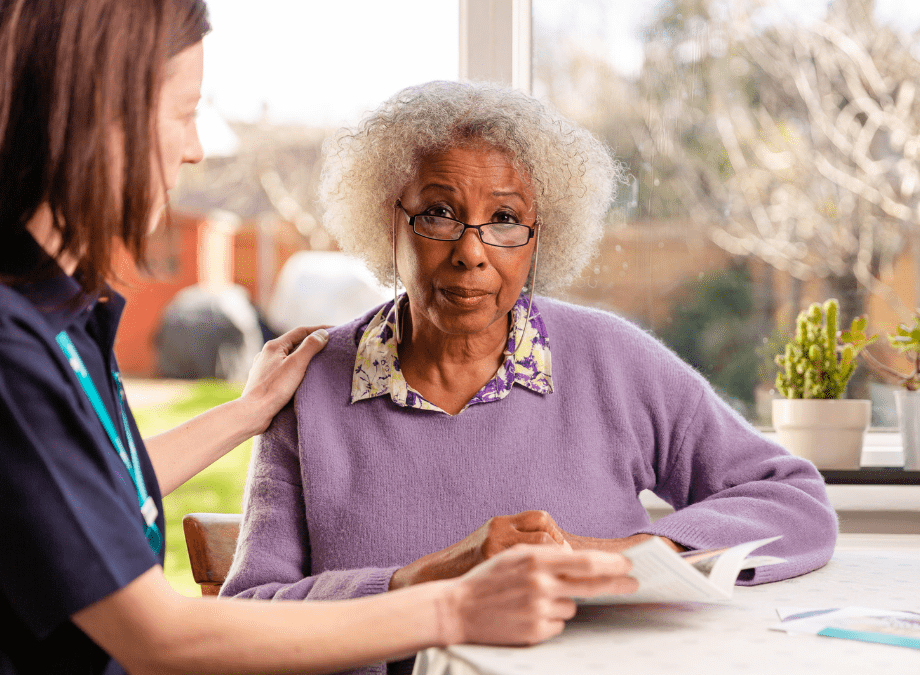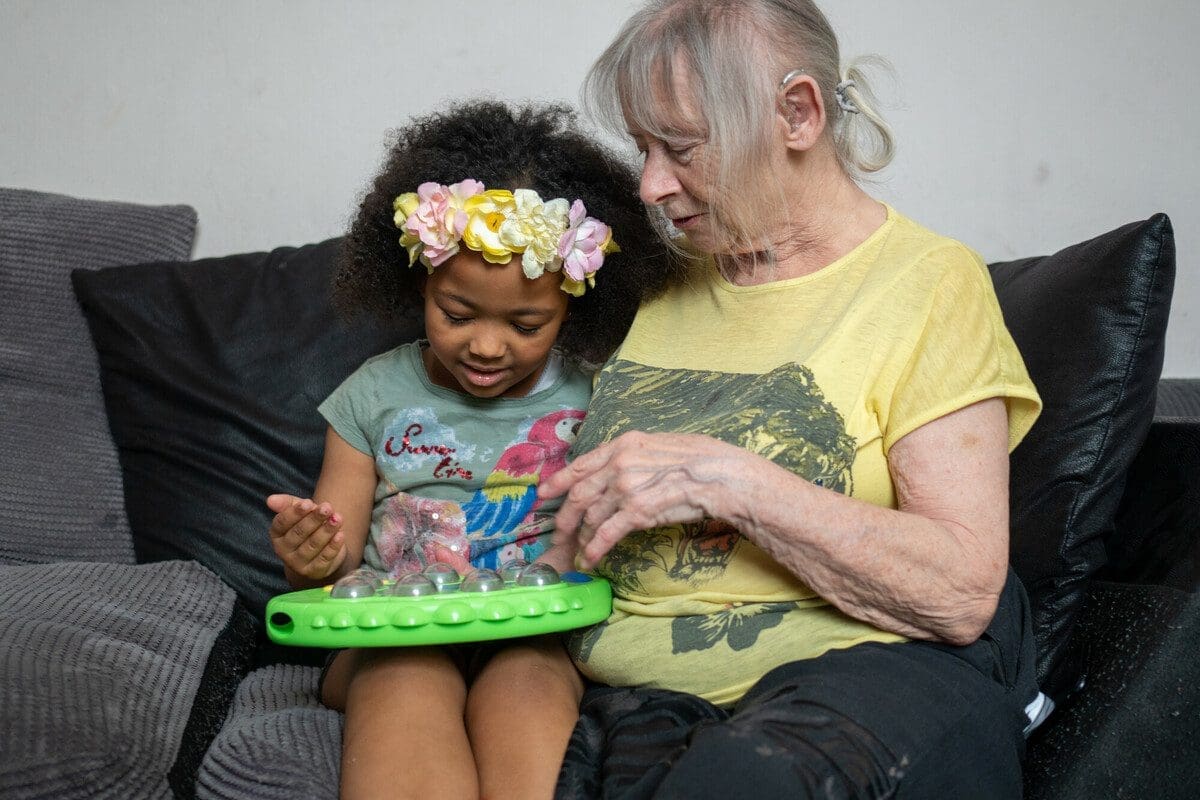Frontotemporal dementia
Find out more about frontotemporal dementia (FTD), what causes it, how it develops, and what you can do to manage its symptoms.
Arthur, whose wife was diagnosed with frontotemporal dementia in 2017, explains how to get the best out of going on holiday with a person who has dementia.

Arthur and his wife on holiday
I am a member of UNITYDEM which is run by the University of Northampton and aims to provide support for the carer as well as for the person with dementia. The free activities on offer within the group include Cognitive Stimulation Therapies (themed activities throughout the year designed to improve the mental abilities and memory of someone living with dementia) as well as sports and dance classes to improve physical and mental wellbeing for the carer and person with dementia.
The group has been a huge benefit to my wife and I, who was diagnosed with frontotemporal dementia in 2017. We meet two to three times a week. The carers chat about the experiences that people have around dementia and discuss ways in which people can approach any challenges they face. The family members or partners with dementia are meanwhile supported in a different room by the UnityDem staff.
One of the recent things some of us in the group decided to do was to go on holiday together. There were four couples overall who went to Suffolk and Bodelwyddan, North Wales. I must admit when I’m holidaying with my wife, we much prefer to holiday in the UK as we can more easily travel back home if my wife has had enough.
I think a lot of the stress around holidaying with dementia comes from the challenges at the airport, train or bus stations and getting through the various checkpoints. I remember, without having the cushion of going on holiday with a group, there would always be the worry that if I were to go to the toilet my wife would wander off. She would always have to have me in sight. We now look for disabled toilets (as we have a blue badge and a disabled key) and I am able to go into the toilet with my wife to support her as needed.
A number of airports are now dementia friendly. They issue a coloured lanyard which alerts the staff to the fact that you, or the person you’re travelling with, has a disability.
On our informal trip we found that everything at the hotel was really well organised and there was a great sense of camaraderie with the other members. Some couples travelled on their own and some shared transport. Those that were sharing transport agreed to make comfort stops as often as possible as there was no hurry. We took this into account in our timings.
The accommodation was fantastic and I can honestly say that people working in the hotel were really receptive and understanding of the fact that some people in the group had dementia. It can always help to check this out when you’re booking accommodation – a simple phone call will do just to see what amenities there are and whether any staff have been dementia trained.
When it comes to meals, people with dementia may find it a challenge to read the menu. However it never felt like the waiters were rushing us. The hotel also operated a carvery service so it meant that everyone could eat at their own pace and partners or family members with dementia never felt they were in a rush.
The point that I would like to stress is to make the effort and try it out. As they say, a change is as good as a holiday. You can go as big and as small as you like and once you’ve done it, it makes the whole process easier for the next time. To make you feel more comfortable and to give you that extra layer of support, you could try going away with a friend or even a larger group like my wife and I did.
When holidaying with someone with dementia, a lot of it is just about being flexible and preparing for every eventuality. But that advice applies regardless of whether or not you have dementia!
The UNITYDEM group is supported by Dementia UK’s Admiral Nurse clinics which allow more people within the local community to be supported around dementia, whether that be through practical advice or signposting to services.
Find out more about frontotemporal dementia (FTD), what causes it, how it develops, and what you can do to manage its symptoms.

Help us raise vital funds, improve care and support for families facing dementia and spread the word about our specialist dementia nurses.

Sharing your story with Dementia UK can help to inspire and reassure others who may be going through similar things.